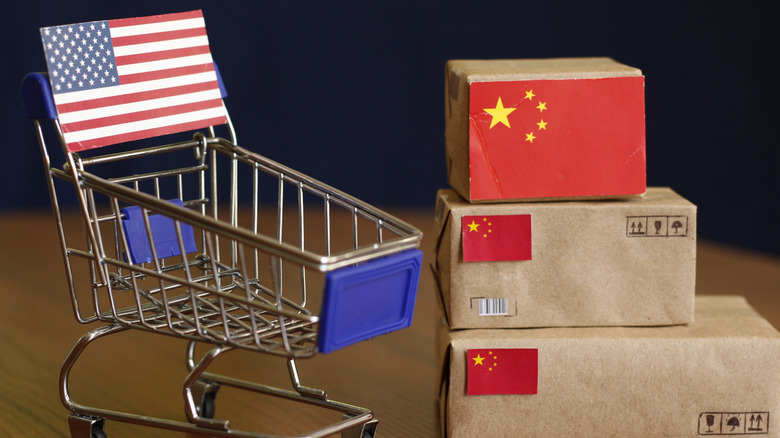How Small Businesses Should Prepare To Weather Trump's Proposed Tariffs
Since the November presidential election, tariffs have been on a lot of people's minds. This is largely due to the fact that President-elect Donald Trump has promised sweeping blanket tariffs on all goods coming from some of the country's largest foreign trading partners. As of his November 25, 2024 social media announcements, Trump intends on implementing an additional 10% tariff on goods from China, as well as a 25% tariff on goods coming into the country from both Mexico and Canada. While there is debate over the legality of the tariffs on Mexico and Canada specifically, it could take a while to ultimately determine or even reverse the policy, leaving consumers dealing with the financial consequences in the interim. Trump also said he would be implementing these tariffs immediately, as part of a bundle of pre-planned executive orders he intends to sign on Jan. 20, 2025, his inauguration day.
It's worth mentioning that the tariffs against Mexico and Canada specifically seem to function as retaliatory for what Trump has described as "ridiculous open borders" in which both neighboring countries have supposedly allowed illegal immigrants and fentanyl to enter the U.S. despite having the power to solve the problem. While there is a lot to be said for how these tariffs can and will affect consumers, a less publicized group that should equally brace for the impact of Trump's proposed tariffs is small business owners. Here's how Trump's proposed tariffs can help and/or hurt small businesses in the year ahead.
How tariffs can hurt small businesses
Any business that relies on either goods, ingredients, or materials from other countries is in for added expense once Donald Trump's tariffs are implemented. Small businesses that import goods from China will be affected the most, since Trump's proposed 10% increase would then make the U.S. tariffs on Chinese goods the highest rate on any imports. It's also worth noting that Trump is likely to implement blanket tariffs on all foreign goods in the 10-20% range. This means that even if a small business primarily imports products from other parts of the world (like Europe or other parts of Asia), they will still be facing increased prices.
However, while companies that might try to switch to other countries (i.e. move away from China) will still face price increases, those increases will more than likely still be less than if they stuck with importing Chinese goods specifically. It's also important to remember that even if a company assembles or builds their products in the U.S., if the materials and/or parts used come from another country, the cost of those goods will increase. All of this is to say that small businesses will face thinner profit margins thanks to the increased costs of their goods. This means that small business owners will either have to pass those added costs onto consumers (via increased prices) which could set off another inflationary period (an economic byproduct the Federal Reserve is bracing for), or hope that their small business can financially eat the difference.
Other things small businesses should know
It's worth noting that certain kinds of small businesses might actually benefit from the implementation of tariffs on imported goods. More specifically, small businesses that produce everything in the U.S. could suddenly find themselves more competitive against imported goods that are facing significant price hikes. However, this will mainly apply to manufacturing businesses, with many small business types relying on imported goods at some point in their production or service process.
Perhaps the biggest thing for small businesses to consider is where they are currently sourcing their goods and/or materials. While prices will go up across the board of anything imported, it could be worth investigating changing suppliers in order to source products or materials from a country with a lower tariff rate (especially if you currently source materials or products from China). While small businesses have been afforded just enough time to potentially stock up on inventory ahead of Trumps' tariff implementation in January, very few (if any) small businesses will be able to stock up with four years worth of goods.
Small businesses are now left with the homework of finding new suppliers, or even potentially switching to domestic producers (depending on the goods and/or ingredients needed) in a short period of time. Another consideration is that, for any small businesses that might sell abroad, retaliatory tariffs could be coming. This means it could end up costing your business even more to sell to foreign countries, further cutting into your business' bottom line.


